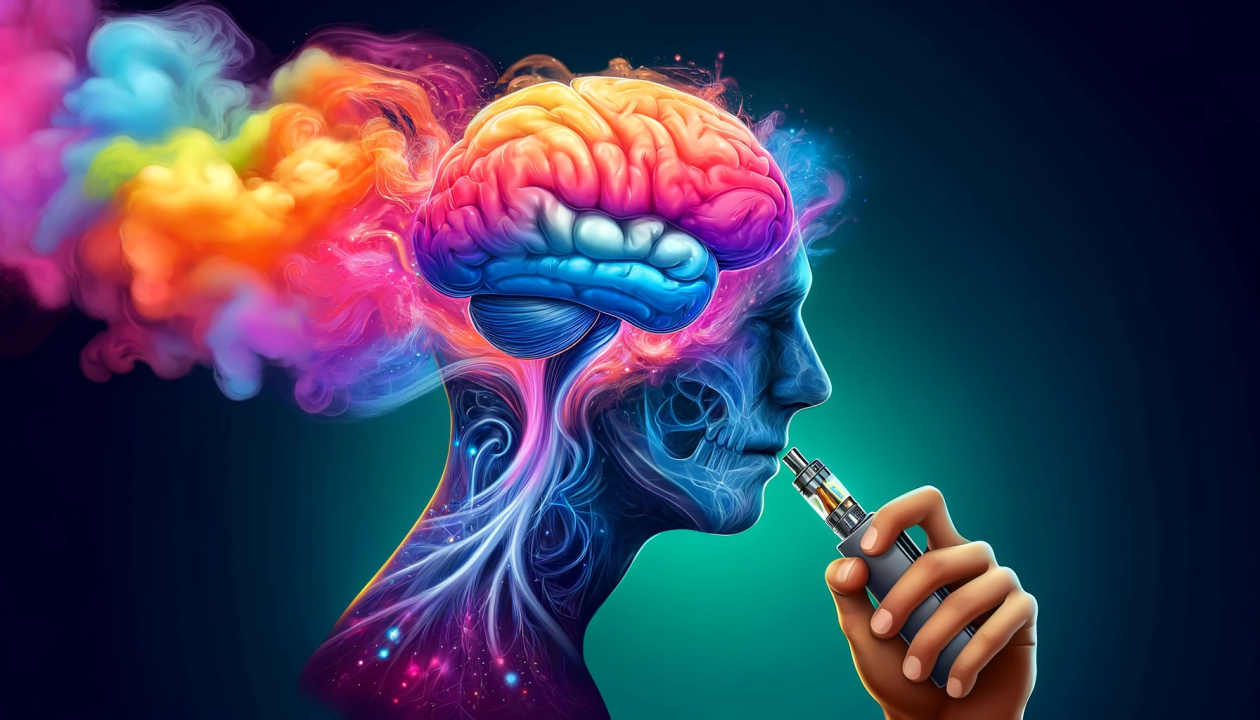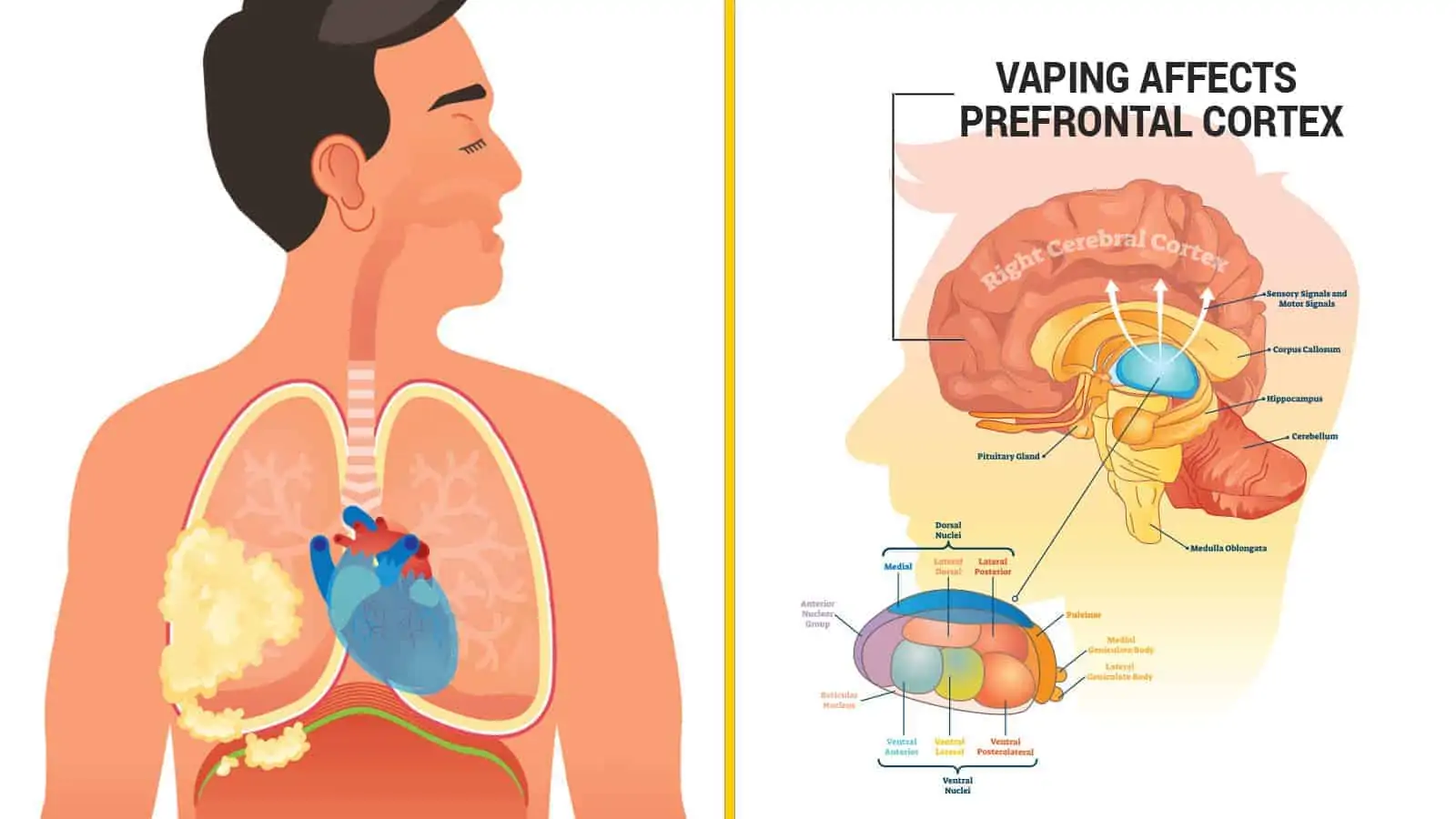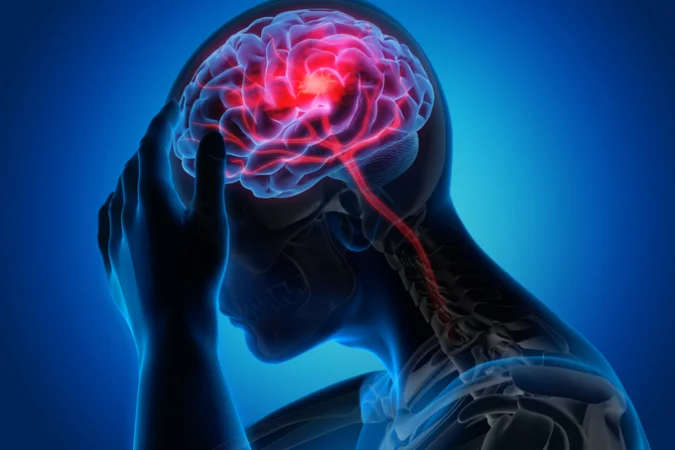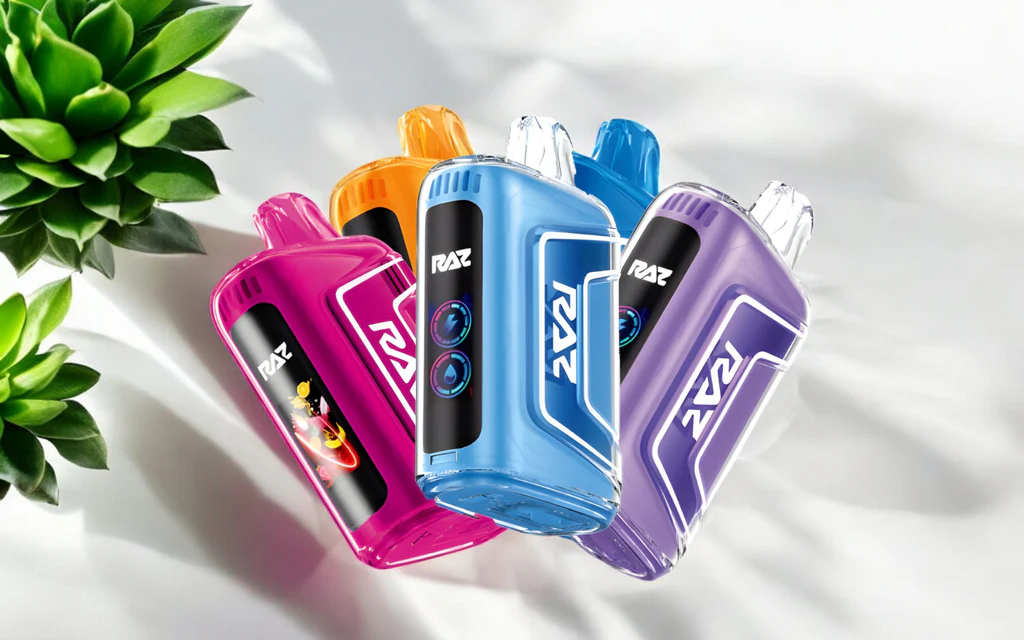How does nicotine vape affect the brain? This is a question many people ask as vaping has become a popular alternative to traditional smoking. While nicotine vapes may offer a quicker and cleaner way to ingest nicotine, they still pose significant risks to brain health. Nicotine is a powerful stimulant that interacts with the central nervous system, and its effects can range from mood swings and heightened alertness to more serious long-term cognitive changes. In this article, we’ll explore the impact of nicotine vaping on brain function,as well as the potential long-term risks. If you’re considering using nicotine vapes or already do, understanding these effects can help you make more informed decisions about your health.

Table of Contents
1. What Is Nicotine and What Type of Drug Is It?
Nicotine is a natural alkaloid found primarily in tobacco plants. It is classified as a stimulant, and its effects on the brain and body can be both immediate and addictive. When inhaled through smoking or vaping, nicotine quickly passes through the bloodstream and crosses the blood-brain barrier. In the brain, it binds to nicotine receptors and releases dopamine, the “feel-good” neurotransmitter associated with pleasure and reward. This is the reason why nicotine can make users feel temporarily relaxed or euphoric. However, it can also lead to addiction.
Though nicotine itself isn’t considered a toxic substance, its addictive potential makes it harmful, particularly in large or repeated doses. In vaping, nicotine is often inhaled without the other dangerous chemicals found in traditional cigarette smoke, but the health risks are still significant.

1.1 Nicotine’s Side Effects on the Human Body
1. Cardiovascular System Effects:
- Increased Heart Rate and Blood Pressure: Nicotine stimulates the sympathetic nervous system, leading to an increase in heart rate and blood pressure. Chronic use of nicotine can elevate the risk of heart disease, stroke, and hypertension.
- Vasoconstriction: Nicotine causes blood vessels to constrict, reducing blood flow. This can lead to cold extremities and increased strain on the heart. Over time, prolonged vasoconstriction may contribute to arterial damage and an increased risk of arteriosclerosis (hardening of the arteries).
2. Gastrointestinal System Effects:
- Increased Gastric Acid Secretion: Nicotine stimulates the secretion of gastric acid, which can result in discomfort in the stomach, and in some cases, lead to conditions like stomach ulcers or gastroesophageal reflux disease (GERD). The increased acid production can irritate the lining of the stomach and esophagus, potentially leading to long-term digestive issues.
- Appetite Suppression: Nicotine has an appetite-suppressing effect, which is why some people use it as a way to control their weight. However, this is not a healthy or sustainable method for weight management, as prolonged nicotine use can lead to various health risks, including addiction and the exacerbation of other physical health issues.
3. Reproductive System Effects:
- Impact on Male Reproductive Health: Long-term smoking is associated with erectile dysfunction (ED) in men. Nicotine can impair blood flow and affect the nervous system, leading to reduced sexual function. The damage to blood vessels and nerves may contribute to chronic erectile problems.

2. How Does Nicotine Vape Affect the Brain?
The effects of nicotine in a dispoable vape are similar to those when smoking a cigarette. However, because vaping bypasses the combustion process, there are fewer harmful byproducts like tar and carbon monoxide. That said, the nicotine still has a powerful impact on brain function:
Dopamine Release (Reward System Activation)
Nicotine stimulates the release of dopamine in the brain’s reward system. This “reward” reinforces the behavior, making users feel good and encouraging them to continue using nicotine. Over time, this can lead to addiction, as the brain starts to associate the act of vaping with pleasure.
Central Nervous System Stimulation
As a stimulant, nicotine raises heart rate and blood pressure, making users feel more alert and focused. This effect is temporary but contributes to the addictive nature of nicotine.
Tolerance and Dependence
With continued use, the brain and body begin to develop tolerance to nicotine, meaning users need to consume more to achieve the same effects. Over time, this leads to both physical and psychological dependence, and withdrawal symptoms (like irritability, anxiety, and difficulty concentrating) can occur when nicotine use is stopped.
Adverse Effects on Brain Development (Adolescents)
In adolescents, nicotine use can interfere with brain development, potentially affecting areas of the brain responsible for learning, memory, and emotional regulation. Studies have shown that young users are more susceptible to addiction and may experience long-term cognitive deficits, including increased risk for anxiety and depression.
Neuroplasticity and Long-Term Impact
Nicotine can alter the brain’s neuroplasticity, or its ability to form new connections. This effect can change the structure of regions involved in reward, motivation, and impulse control. These changes can reinforce addiction and make it harder for users to quit.
2.1 Positive Effects of Nicotine Vape on the Brain
Despite its addictive nature, nicotine vape can have some short-term positive effects:
Improved Alertness and Focus
Nicotine boosts the release of neurotransmitters like norepinephrine and dopamine, which can enhance concentration and alertness, particularly when users need to focus for extended periods.
Stress and Anxiety Relief
For some individuals, vaping with nicotine provides a temporary sense of calm and relaxation, as it activates the brain’s reward pathways. This can help reduce stress or anxiety in the short term.
Enhanced Memory and Learning (Short-Term Effects)
Some studies suggest that nicotine may improve short-term memory and cognitive performance. It has been used as a cognitive enhancer in some contexts, although these effects are generally brief.
2.2 Negative Effects of Nicotine Vape on the Brain
While nicotine vape may have temporary benefits, its long-term effects on the brain can be detrimental:
Addiction and Dependence
Nicotine is highly addictive. Long-term use of nicotine vapes can lead to both physical and psychological dependence. Withdrawal symptoms can include irritability, anxiety, and difficulty focusing.
Damage to Brain Development (Especially in Adolescents)
Young users are at a higher risk of impaired brain development. Nicotine can affect memory, learning abilities, and emotional regulation, with long-lasting consequences that can impact a person throughout their life.
Cognitive Decline (Long-Term Use)
Chronic nicotine use can impair cognitive function, including attention, decision-making, and memory. Long-term smokers or vapers may experience a decline in learning ability, and studies suggest that these effects may become more pronounced as they age.
Mental Health Issues
While nicotine may initially alleviate stress or anxiety, long-term use can worsen mood disorders. Many nicotine users experience mood swings, anxiety, and depression, particularly when they attempt to quit or reduce consumption.
Alteration of the Brain’s Reward System
Over time, nicotine can alter how the brain responds to rewards. This leads users to become reliant on nicotine to activate their brain’s reward system, reducing their ability to enjoy other, more natural rewards, and reinforcing addiction.
3. Does Nicotine Vape Affect Sleep?
Yes, nicotine can affect sleep. As a stimulant, nicotine increases alertness, making it more difficult to fall asleep, especially if vaped shortly before bed.
Increased Alertness
Nicotine activates the central nervous system, raising heart rate and blood pressure, which can make it harder to relax and fall asleep.
Delayed Sleep Onset
Vaping nicotine before bedtime may delay sleep onset, as the body remains in an alert state.
Reduced Deep Sleep
Nicotine can reduce the amount of deep, restorative sleep, which can lead to feelings of fatigue the following day.
Frequent Wake-Ups
Some users report waking up more frequently during the night after using nicotine. This disruption can further affect sleep quality.
Sleep Improvement After Quitting
Many people notice improvements in sleep quality after quitting nicotine. As the body adjusts, sleep patterns become more regular and restorative.
3.1 How Long Can Nicotine Keep You Awake?
The stimulating effects of nicotine are short-lived but noticeable:
- Short-Term Effects: Nicotine takes about 5 to 10 minutes to reach peak levels in the blood, producing feelings of alertness that can last from 30 minutes to 1 hour.
- Tolerance and Dependence: With regular use, tolerance to nicotine develops, requiring higher doses to achieve the same stimulating effects.
3.2 How Long Does It Take to Recover from Nicotine Use?
Recovery from nicotine dependence is a gradual process. Here’s a general timeline:
Short-Term Recovery (Hours to Days)
Within 24 hours of quitting, nicotine levels in the blood drop significantly. Most physical withdrawal symptoms, like irritability and anxiety, begin within the first few days but usually peak around 2-3 days after quitting.
Mid-Term Recovery (Weeks to Months)
After 1-2 weeks, psychological cravings and withdrawal symptoms begin to lessen, and cognitive function may start to improve. After 1-3 months, the body begins to recover its health, with better lung function and circulation.
Long-Term Recovery (6-12 Months)
Over the course of 6 to 12 months, cognitive functions like attention and memory improve. However, the risk of relapse can remain strong during this time.
1 Year and Beyond
After a year of nicotine-free living, most physical and psychological dependencies are gone, but the risk of relapse in certain situations (like high stress) may persist.
4. Does Nicotine-Free Vape Affect Sleep?
Nicotine-free vapes have a relatively small impact on sleep quality compared to nicotine-containing vapes, but several factors can still influence how well you sleep. Here’s a detailed breakdown:
1. Psychological Dependence and Habitual Use
- Psychological Impact: Even without nicotine, many people may develop a psychological reliance on their no nicotine vape. After prolonged use, some individuals form habits such as “vaping before bed” or “vaping to relax.” These habitual actions can keep the brain alert, making it harder to fall asleep or affecting sleep depth.
- Anxiety and Mood Swings: Some people who are trying to reduce or quit nicotine use may turn to no nicotine vapeas a way to manage withdrawal symptoms. Even without nicotine, the emotional response to withdrawal—like anxiety and irritability—can indirectly impact sleep quality.
2. Vapor Ingredients and Respiratory Impact
- Chemical Components: The vapor from no nicotine vapetypically consists of propylene glycol (PG), vegetable glycerin (VG), and flavoring agents. These substances may cause throat irritation, coughing, or other respiratory issues, especially in those sensitive to these chemicals. If these discomforts arise at night, it may lead to poor sleep, with frequent awakenings or shallow sleep.
- Flavor Ingredients: Many no nicotine vapeliquids contain various flavorings, like fruit or menthol. These flavors may cause allergic reactions or discomfort for some individuals. In poorly ventilated rooms, these chemical smells could create a feeling of suffocation or discomfort, thereby disturbing sleep. It’s always a good idea to check for vaping safety and ensure you’re using healthy vape products that are less likely to cause such reactions.
3. Indirect Stimulation of the Brain and Nervous System
- Mild Nervous System Stimulation: Although no nicotine vapedoesn’t have the direct stimulant effects of nicotine, the ingredients in the vapor (like PG and flavorings) could still lightly stimulate the nervous system. This can increase alertness or anxiety in some people, making it harder to fall asleep. Some users may feel “energized” or “awake” immediately after vaping, which can delay sleep onset.
- Changes in Breathing Patterns: Long-term use of no nicotine vapecan alter natural breathing patterns. For instance, inhaling large amounts of vapor can change the frequency or depth of your breathing. While this impact is typically mild, in some individuals it may disrupt the natural rhythm of sleep, making it harder to maintain deep, restorative sleep.
4. Habitual Physiological Responses
- Behavioral Dependence: Some individuals are accustomed to using their no nicotine vapeat specific times, such as before bed. Regardless of the absence of nicotine, this habitual behavior can affect the body’s physiological state, keeping the brain alert even during bedtime, which makes it harder to fall asleep.
- “Relaxation” Effect: Some users believe vaping with a healthy vapehelps them relax. However, this relaxation is more psychological than physiological. The body may still remain in a slightly heightened state, preventing natural relaxation and interfering with the preparation for sleep.
5. Why Does Nicotine Make Me Dizzy?
Nicotine is known to cause dizziness for several reasons, and the effects can vary depending on individual sensitivity. Here are the most common reasons:
1. Changes in Blood Pressure and Heart Rate
Nicotine is a stimulant that activates the sympathetic nervous system, leading to an increase in heart rate and blood pressure. These changes can cause dizziness, particularly in people who are sensitive to nicotine or are new to using nicotine vape.
2. Blood Sugar Fluctuations
Nicotine can also affect blood sugar levels, causing rapid increases or fluctuations. These changes in blood sugar may lead to feelings of dizziness or weakness, particularly when food hasn’t been consumed recently.
3. Oxygen Deprivation
When using nicotine products like nicotine vape, nicotine causes blood vessels to constrict, leading to reduced blood flow. In the case of smoking, carbon monoxide binds to hemoglobin in the blood, reducing its ability to carry oxygen. This temporary lack of oxygen to the brain can cause dizziness.
4. Excessive Use
Overconsumption of nicotine, especially if you’re not used to nicotine products, can lead to nicotine toxicity. Symptoms include dizziness, nausea, and a rapid heartbeat. Nicotine overdose overstimulates the body, causing discomfort and dizziness.
5. Dehydration
Nicotine also has a mild diuretic effect, meaning it can increase urine production and cause dehydration. One common symptom of dehydration is dizziness, particularly if you haven’t been drinking enough fluids while using nicotine vape.
6. Best Disposable Vapes of 2025: RAZ TN9000 and Geek Bar Pulse
In 2025, the disposable vape market continues to evolve with new, innovative products that promise high performance, great flavor, and convenience. Among the top choices this year are the RAZ TN9000 and the Geek Bar Pulse. Both offer unique features that cater to vapers seeking quality and ease of use. Let’s dive into the details of these two top disposable vapes and explore how they might affect your brain and body.
1. RAZ TN9000 Disposable Vape
The RAZ TN9000 is a standout in the disposable vape category for 2024, offering a balance of flavor, performance, and long-lasting satisfaction.
Features:
- Nicotine Strength: Available in a variety of nicotine strengths, making it suitable for both nicotine enthusiasts and those looking for a less intense experience.
- Capacity: The RAZ TN9000boasts a large e-liquid capacity, often providing up to 9000 puffs, which makes it one of the longest-lasting disposable vapes in the market.
- Flavors: With a wide range of RAZ vape flavors, from fruity blends to menthols and dessert options, users can find a taste that suits their preferences.
- Design: Sleek, compact, and easy to use, the TN9000 has a modern design that fits comfortably in your hand.
- Nicotine Type: Often utilizes salt nicotine, which provides a smoother throat hit and quicker nicotine absorption compared to freebase nicotine.

Brain and Body Impact:
- The RAZ TN9000, like most disposable vapes, delivers nicotine to the brain rapidly, which can trigger dopamine release. This can create a feeling of pleasure or relaxation, especially for those who have a nicotine habit. However, the long-term use of nicotine can lead to dependency, potentially affecting cognitive function, mood regulation, and overall brain health. Short-term effects include heightened alertness and focus, while prolonged use can contribute to increased anxiety, difficulty with concentration, and memory problems.
2. Geek Bar Pulse Disposable Vape
The Geek Bar Pulse is another highly popular disposable vape in 2024, known for its robust build, great flavor profiles, and impressive performance.
Features:
- Nicotine Strength: The Geek Bar Pulseoffers various nicotine strengths, allowing users to choose their ideal level.
- Puff Count: With an impressive capacity for up to 6000 puffs, the Geek Bar Pulse provides a long-lasting vaping experience for those who don’t want to constantly replace their disposable device.
- Flavors: This device features an array of exciting flavors, ranging from tropical fruits to cool menthol, making it appealing to a wide audience.
- Smart Features: The Geek Bar Pulse is equipped with advanced features such as adjustable airflow, allowing users to personalize their vaping experience.
- Nicotine Type: Typically, the Geek Bar Pulse uses salt nicotine, offering smoother hits and faster nicotine absorption, providing immediate satisfaction.

Brain and Body Impact:
- Like the RAZ TN9000, the Geek Bar Pulsedelivers nicotine, which is a central nervous system stimulant. Nicotine affects the brain by binding to nicotinic receptors, leading to the release of neurotransmitters like dopamine and norepinephrine. This can result in enhanced mood, increased focus, and a sense of relaxation, but it also leads to the development of tolerance and dependency over time. Prolonged nicotine use can negatively affect memory, increase stress levels, and disrupt sleep patterns. Additionally, vaping safety is always a concern, as prolonged exposure to certain chemicals in the vapor could potentially cause respiratory issues or irritate the throat.
7. User Stories: Comparing the Effects of Nicotine Vapes and No Nicotine Vapes on Headaches and Brain Impact
When it comes to vaping, many users are curious about the differences between nicotine vapes and no nicotine vapes, particularly in terms of their effects on headaches and other brain functions. Below are two user stories that highlight how these products can affect the brain, mood, and overall well-being.
User Story 1: Sarah’s Experience with Nicotine Vapes
Background: Sarah is a 28-year-old office worker who has been using nicotine vapes for the past two years. She started vaping as a way to reduce her smoking habit, but over time, she became reliant on nicotine for stress relief. Lately, Sarah has noticed that she sometimes gets headaches after using her nicotine vape, especially after extended sessions.
Sarah’s Experience: “I started vaping to quit smoking, but now it feels like I rely on my nicotine vape throughout the day. I usually vape when I’m stressed or when I need a little break. However, I’ve started experiencing headaches after longer vaping sessions, and I feel like my focus drops when I try to get work done. I’ve also noticed that my mood swings a little more—sometimes I feel a burst of energy, but other times I feel irritable or anxious.
When I don’t vape for a few hours, I start feeling a headache coming on, like a low-level migraine. It’s almost like a withdrawal symptom, even though I haven’t actively tried to quit. I looked up some information online, and it seems like my headaches could be related to the nicotine itself, maybe due to the blood pressure changes it causes or the way nicotine affects my brain. Sometimes I feel really lightheaded or dizzy after vaping, too.
Overall, I know I should probably reduce my nicotine intake, but it’s hard to stop because vaping gives me a quick boost, even though it’s leaving me with a headache and mental fog in the long run.”
Sarah’s Reflection: Nicotine affects Sarah’s brain by stimulating the release of dopamine and norepinephrine, which causes a temporary feeling of euphoria or alertness. However, nicotine also constricts blood vessels, increases heart rate, and raises blood pressure, all of which can contribute to headaches and dizziness. Additionally, Sarah’s withdrawal symptoms when she skips vaping sessions are likely a result of her body’s dependence on nicotine, which can cause irritability and cognitive disturbances like difficulty focusing.
User Story 2: James’ Experience with No Nicotine Vapes
Background: James, a 35-year-old freelance designer, has been using no nicotine vapes for several months. Initially, he turned to vaping as a way to satisfy his oral fixation without worrying about nicotine addiction. James has noticed that he does not experience the same kind of mental clarity or energy after vaping as he did when he used nicotine vape, but he’s also been headache-free, which is a welcome change.
James’ Experience: “I used to vape nicotine, but I decided to make the switch to no nicotine vape because I didn’t want to get hooked on nicotine. Since switching, I haven’t had any headaches like I used to, but I’ve also noticed that I don’t get the same level of ‘mental buzz’ from vaping anymore.
At first, I thought I’d miss the nicotine, but surprisingly, I’ve felt more clear-headed and focused after switching to no nicotine vape. I used to experience mild headaches during the day, especially in the afternoon, but that’s completely gone since I stopped using nicotine. I don’t feel as jittery or anxious anymore, either. The vapor itself doesn’t seem to bother me either, though I’ve read some reports that it could irritate your throat if you’re not careful about the ingredients.
It’s definitely a relief to not get those painful headaches, but I sometimes feel like I need the hand-to-mouth action of vaping as a stress reliever. Still, overall, my brain feels a lot more balanced, and I’m happy I switched.”
James’ Reflection: James’ decision to use no nicotine vape has led to fewer headaches and a reduction in the mental fog he associated with nicotine consumption. Since no nicotine vape lacks the stimulating effects of nicotine, it does not cause the same physiological changes in the brain (such as increased heart rate, blood pressure, or dopamine release). As a result, he’s experienced a calmer mental state and fewer withdrawal symptoms. However, the habitual nature of vaping still plays a role in his experience, as the hand-to-mouth action can still trigger some stress relief.
8. How to Use a Nicotine Vape Healthily?
Vaping, especially with nicotine, is an alternative to smoking, but like any other product, it’s essential to use it responsibly to minimize potential risks. Here are some guidelines for using nicotine vapes in a healthier way:
1. Choose High-Quality Products
- Opt for reputable brands and high-quality nicotine vapes. Poor-quality products may contain harmful chemicals or unsafe levels of nicotine. Look for products with clear ingredient labels and certification from regulatory bodies.
- Purchase your vape from trusted sources, such as vape shops near me, to ensure that you’re getting products that meet safety standards.
2. Start with Low Nicotine Strength
- If you’re new to vaping, start with a low nicotine strength. This will help your body adjust gradually without overwhelming it. You can always increase the nicotine level as your tolerance builds.
- If you’re trying to quit smoking, consider gradually decreasing the nicotine concentration over time.
3. Monitor Your Usage
- Vaping can be habit-forming, so it’s important to monitor how much you’re using. Try to limit your usage to avoid excessive nicotine intake, which could lead to addiction or other health concerns.
- Avoid chain-vaping. This means taking long, continuous puffs in a short period. Give yourself time between puffs to avoid overwhelming your system.
4. Avoid Vaping in Excess
- While vaping may feel like a safer alternative to smoking, it’s still essential to avoid excessive use. High nicotine intake can cause side effects like headaches, dizziness, nausea, and even nicotine poisoning in severe cases.
- Pay attention to how you feel after vaping. If you feel lightheaded, dizzy, or unwell, take a break from vaping.
5. Stay Hydrated
- Vaping can cause dry mouth and dehydration. Make sure to drink plenty of water throughout the day to keep your body hydrated and reduce discomfort.
6. Use in Well-Ventilated Areas
- Vapor contains substances like propylene glycol and vegetable glycerin, which can irritate your lungs and airways. Always vape in a well-ventilated area to ensure the vapor doesn’t accumulate, and you can breathe in fresh air.
- Avoid vaping in confined spaces where the vapor may linger, as it can affect those around you, particularly people with respiratory sensitivities.
9. Vape Shops Near Me: Why Choose Our Shop? What Are Our Advantages?
If you’re looking for a reliable and professional place to purchase nicotine vapes or no nicotine vapes, here’s why you should choose our vape shop:
1. Wide Selection of Quality Products
- We offer a diverse range of nicotine vapes, no nicotine vapes, and other vaping accessories, ensuring that you find exactly what you need. From disposable vapesto refillable devices, we have something for every preference and experience level.
- Our product range includes top-quality, trusted brands known for their safety and performance, including RAZ TN9000, Geek Bar Pulse, and more. We prioritize customer satisfaction, so we only stock items that meet high-quality standards.
2. Exceptional Customer Service
- Our vape shopprides itself on offering excellent customer service. We offer a friendly, non-judgmental environment where you can explore vaping options and receive honest advice.
- If you ever need help with setting up your vaping deviceor troubleshooting issues, we are here to help you with in-depth support.
3. Competitive Prices
- We offer competitive pricing on all of our products. Plus, we regularly offer special promotions, discounts, and loyalty programs to ensure you get the best deal.
- You can trust that our prices reflect the value and quality of the products we sell, without hidden fees or upselling.
4. Convenient Location and Online Shopping Options
- Located conveniently near you, our vape shopis easy to access, so you don’t have to go far to find your favorite vaping products. We understand that your time is valuable, and we make sure shopping with us is quick and hassle-free.
- Additionally, if you prefer to shop from the comfort of your home, we offer a user-friendly online store with fast delivery options. You can browse through our selection of nicotine vapes, no nicotine vapes, and accessories at any time and have them delivered right to your door.
10. Conclusion
Nicotine vaping has a powerful impact on the brain. While it provides some short-term benefits like improved alertness and stress relief, its long-term effects can be harmful, particularly for adolescents and individuals who vape heavily. Nicotine is highly addictive, and long-term use can lead to cognitive decline, mood disturbances, and impaired brain development. The best way to mitigate these risks is by reducing or quitting nicotine use, improving both brain function and overall health.You can search for our store at google.com.

